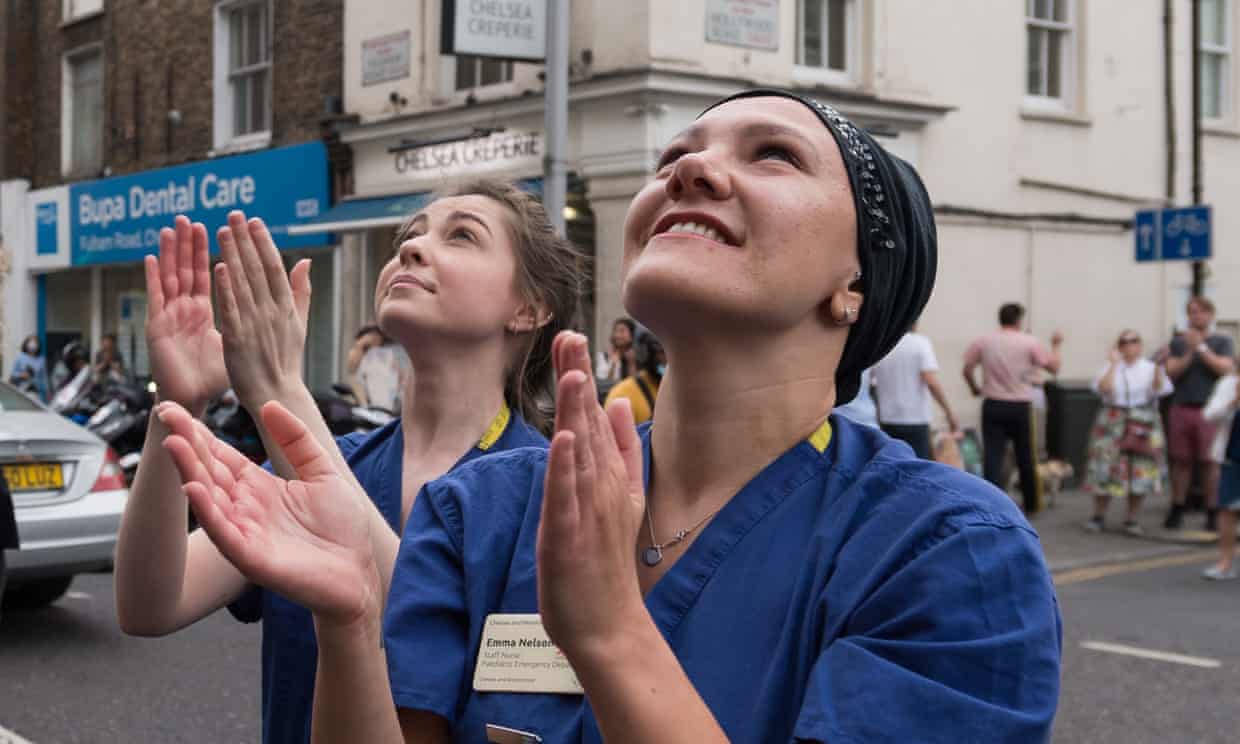
Nursing
Why shut nurses out of decision-making?
Jane Salvage, a fellow of the Royal College of Nursing, asks why nurses have been rendered invisible in the management of the Covid-19 pandemic
by LettersNurses are part of the invisible army keeping hospitals, care homes, hospices and community services going against great odds. Every week we are applauded on doorsteps and candles are put in windows. On International Nurses Day, Boris Johnson said: “We owe you more than words can say.” So why is the nursing perspective mostly ignored in decision-making?
Nursing connects evidence, policy and practice. We are experts in the science and art of care. But we are absent from most top tables, valued in words but not in deed (Martin Rowson, 22 May). There are remarkably few women in government influencing decisions on coronavirus (On coronavirus, men are calling all the shots. We’re seeing why it matters, 22 May). We rarely see England’s chief nursing officer, Ruth May, speaking alongside the chief medical officer, Chris Whitty. The scope and influence of this role has been reduced in England, because of misogyny, civil service cuts and botched healthcare reforms. This is just one of many failures to recognise the value of nursing leadership. Kind words, however well meant, can sound very hollow.
Jane Salvage
Fellow, Royal College of Nursing
• Join the debate – email guardian.letters@theguardian.com
• Read more Guardian letters – click here to visit gu.com/letters